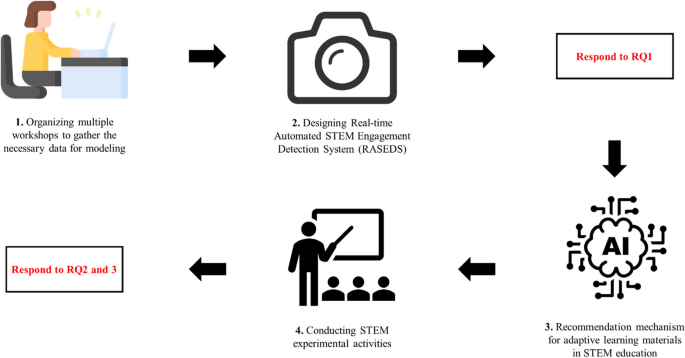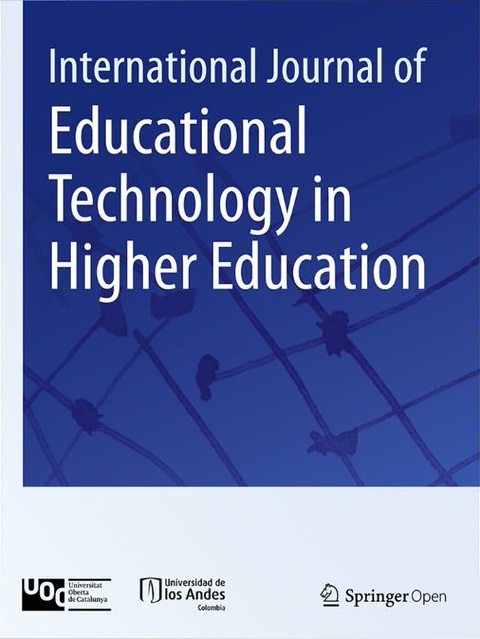利用计算机视觉进行STEM教育中的适应性学习:参与和自我效能的影响
IF 16.7
1区 教育学
Q1 EDUCATION & EDUCATIONAL RESEARCH
International Journal of Educational Technology in Higher Education
Pub Date : 2023-09-29
DOI:10.1186/s41239-023-00422-5
引用次数: 1
摘要
在旨在培养解决问题能力的科学、技术、工程和数学(STEM)教育领域,准确评估学习者的参与程度仍然是一个重大挑战。我们提出了一种解决方案,即实时自动化STEM接合检测系统(RASEDS)。这个创新的系统利用了人工智能、计算机视觉和交互式、建设性、主动和被动(ICAP)框架的力量。RASEDS使用You Only Learn One Representation (YOLOR)来检测学习者的互动,并将其映射到ICAP框架中描述的四个参与层次。这一过程为系统推荐适应性学习材料提供了信息,旨在提高STEM活动的参与度和自我效能感。我们的研究证实,RASEDS准确地测量了投入度,随后使用这些适应性材料显著提高了投入度和自我效能感。重要的是,我们的研究表明,自我效能感的提升和参与度的提高之间存在联系。随着学习者在学习过程中变得更加投入,他们的信心得到了增强,从而增强了自我效能感。我们强调人工智能在促进STEM教育中的适应性学习方面的变革潜力,强调参与与自我效能之间的共生关系。本文章由计算机程序翻译,如有差异,请以英文原文为准。

Leveraging computer vision for adaptive learning in STEM education: effect of engagement and self-efficacy
Abstract In the field of Science, Technology, Engineering, and Mathematics (STEM) education, which aims to cultivate problem-solving skills, accurately assessing learners' engagement remains a significant challenge. We present a solution to this issue with the Real-time Automated STEM Engagement Detection System (RASEDS). This innovative system capitalizes on the power of artificial intelligence, computer vision, and the Interactive, Constructive, Active, and Passive (ICAP) framework. RASEDS uses You Only Learn One Representation (YOLOR) to detect and map learners' interactions onto the four levels of engagement delineated in the ICAP framework. This process informs the system's recommendation of adaptive learning materials, designed to boost both engagement and self-efficacy in STEM activities. Our study affirms that RASEDS accurately gauges engagement, and that the subsequent use of these adaptive materials significantly enhances both engagement and self-efficacy. Importantly, our research suggests a connection between elevated self-efficacy and increased engagement. As learners become more engaged in their learning process, their confidence is bolstered, thereby augmenting self-efficacy. We underscore the transformative potential of AI in facilitating adaptive learning in STEM education, highlighting the symbiotic relationship between engagement and self-efficacy.
求助全文
通过发布文献求助,成功后即可免费获取论文全文。
去求助
来源期刊
CiteScore
19.30
自引率
4.70%
发文量
59
审稿时长
76.7 days
期刊介绍:
This journal seeks to foster the sharing of critical scholarly works and information exchange across diverse cultural perspectives in the fields of technology-enhanced and digital learning in higher education. It aims to advance scientific knowledge on the human and personal aspects of technology use in higher education, while keeping readers informed about the latest developments in applying digital technologies to learning, training, research, and management.

 求助内容:
求助内容: 应助结果提醒方式:
应助结果提醒方式:


